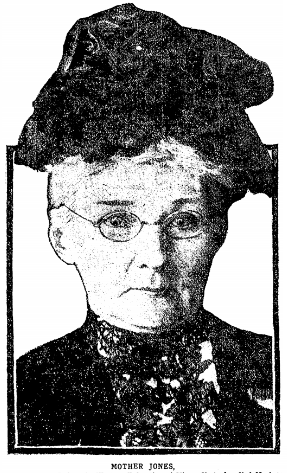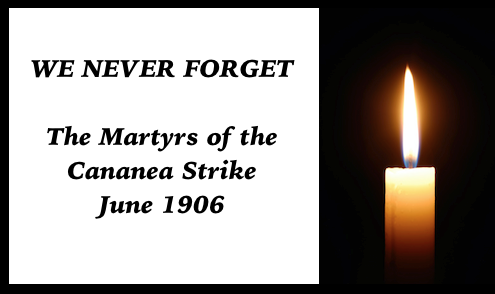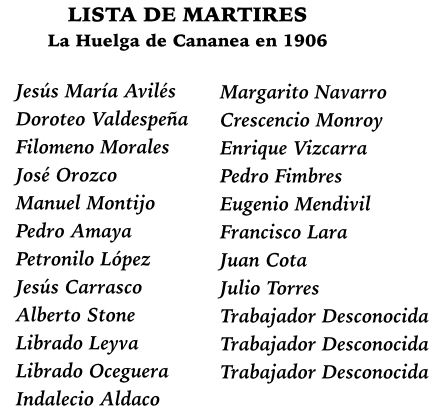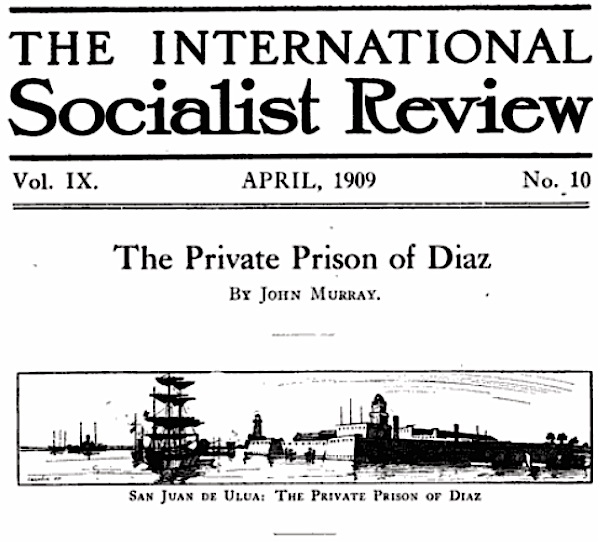 [Part II]
[Part II]
[John Murray at San Juan de Ulua Prison, continues speaking with the sympathetic soldier…]
Without a word the soldier turned and walked towards the archway. I followed at his heels and we made our way around outside the walls, entered the arsenal and climbed an inner staircase to the battlements of the fortress.
Pointing out to sea, my guide showed me a small man-of-war coming into the harbor.
“That’s the ‘General Bravo’—look at it. Keep looking at it, senor, and while we are here alone I will stand behind your back and tell you all I know of the martyrs imprisoned in Ulua.
“The friends of Magon in the army are many. Here, in Ulua, all would be glad to see a way out of this hell—but will it ever come?”
I answered as I believed, in all sincerity, “It will come,” and with a look of encouragement the young soldier went on:
Six months ago I came to Ulua from Sonora, and never once have I seen the political prisoners. But this I saw with my own eyes:
Late on a Sunday afternoon, a boat with two occupants came rowing towards the guardhouse of the west side landing. I saw it before the others, being far-sighted, and this my first day of guard duty on the island. As the boat touched the pier, a white-haired lady wrapped in a black shawl, and trembling with age, was just able to mount from the rocking gunnel to the first stone step, where she sank down, panting and exhausted. The oarsman was a small, black Indian from the mountain tribes near Orizaba. Martin Jose Pico, our hook-nosed, thief-of-a-sergeant—ration-robbing is his trade-roughly demanded her pass, but she had none.
This was such a strange occurrence—a white-haired woman of over eighty years trying to gain entrance to the prison without credentials—that the officer of the day was summoned.
Captain Garcia likes not old women, and to the black figure seated at his feet on the stone step, his words were short and sharp:
“Speak! What do you want?”
“To see a boy who is imprisoned here,” replied the trembling, low-toned voice of the old lady.
“A boy? We have no boys. Who is he?” testily demanded the officer.
“Juan Sarabia,” replied the white-haired woman.
At this name the captain took a sudden step back, for of all the prisoners most strictly kept “incommunicado” is this famous revolutionist, Juan Sarabia. Even to mention his name is forbidden the soldiers of Ulua.
White-faced, the officer gripped the old lady by her arm and stuttered a rasping question:
“Fool! who are you?”
“His mother,” came the answer.
Continue reading “Hellraisers Journal: From the International Socialist Review: John Murray on the Prisons of Diaz, Part II” →
 ———-
———-

 ———-
———-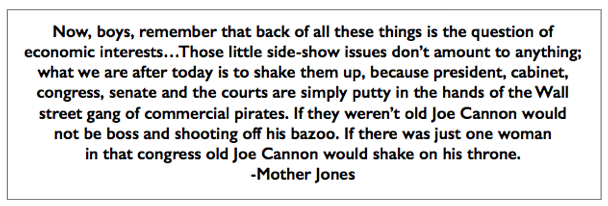 —–
—–